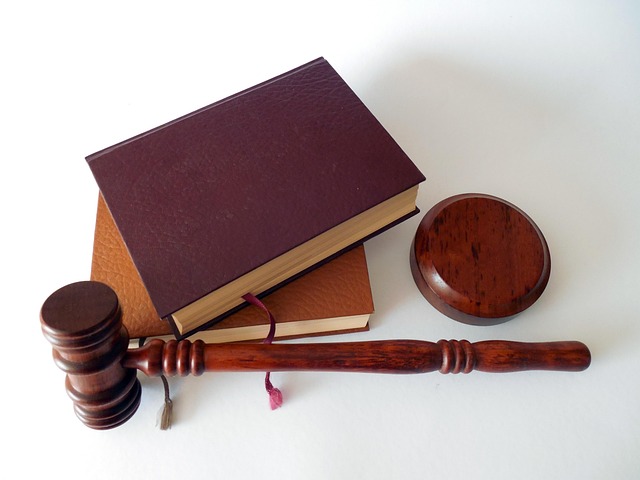Environmental Crime Trials serve as powerful legal tools to enforce environmental protection laws and hold offenders accountable. Post-conviction relief options for felons include appeals, habeas corpus, and collateral attacks, aiming to correct errors or secure new trials. Skilled legal counsel specializes in navigating complex post-trial procedures, utilizing evidence, and forensics to challenge convictions. Successful defenses lead to reversals, offering hope and restoring faith in the justice system for environmental causes, with notable precedents set for post-conviction relief options for felons.
“Environmental Crime Trials: Uncovering Justice and Restoring Balance explores the intricate legal battles surrounding environmental offenses. This article delves into the unique challenges faced by those convicted, focusing on post-conviction relief options for felons. We examine the legal framework of understanding these trials, post-conviction appeals, and the crucial role of evidence in reversing environmental convictions. By presenting case studies of successful reversals, we highlight strategies that have led to justice being served, offering insights into a critical aspect of environmental law.”
- Understanding Environmental Crime Trials: A Legal Framework
- Post-Conviction Challenges: Exploring Relief Options
- The Role of Evidence and Legal Arguments in Appeal
- Success Stories: Case Studies of Reversed Environmental Convictions
Understanding Environmental Crime Trials: A Legal Framework
Environmental Crime Trials offer a unique legal framework for addressing violations related to environmental protection and conservation. These trials are essential in holding individuals and corporations accountable for their actions, especially when it comes to white-collar and economic crimes. The process involves navigating all stages of the investigative and enforcement process, from initial detection to prosecution and subsequent post-conviction relief options for felons. By examining the evidence and applying relevant laws, courts ensure that justice is served, providing a safety net for our ecosystems and communities.
Understanding these trials is crucial for both legal professionals and the general public. It allows for a deeper comprehension of how the law protects our environment and offers remedies when violations occur. Furthermore, it highlights the importance of such cases in shaping environmental policies and deterring future crimes, ensuring that those found guilty face meaningful consequences, including potential post-conviction relief options tailored for their specific offenses.
Post-Conviction Challenges: Exploring Relief Options
After a conviction, individuals facing environmental crimes often navigate complex post-trial landscapes. The quest for justice doesn’t end with a verdict; it’s here that exploring various post-conviction relief options for felons becomes paramount. These avenues provide a chance to rectify errors and offer new perspectives on high-stakes cases. Many defendants are seeking ways to achieve extraordinary results, such as winning challenging defense verdicts, by leveraging legal strategies not immediately apparent during trial.
This phase involves scrutinizing the original proceedings for potential procedural errors, prosecutorial misconduct, or newly discovered evidence. Appeals, habeas corpus petitions, and collateral attacks are common tools to challenge convictions. Each strategy demands meticulous attention to detail and a deep understanding of environmental law and criminal procedure. Skilled legal counsel specializing in these areas plays a crucial role in navigating this intricate process, aiming to set aside unjust outcomes and foster fairness in high-stakes cases.
The Role of Evidence and Legal Arguments in Appeal
In Environmental Crime Trials, the role of evidence and legal arguments is pivotal during appeals. Strong, well-presented evidence can upend even the most formidable prosecution cases. Experts in environmental forensics play a crucial role in unearthing hidden facts, while meticulous legal teams craft compelling narratives that challenge the prosecution’s stance. By employing innovative strategies and leveraging the latest scientific advancements, these defenses aim to secure post-conviction relief options for felons—a testament to their unprecedented track record in winning challenging defense verdicts.
Moreover, understanding the specific environmental regulations and their respective business implications is essential. Legal arguments must navigate complex legal landscapes, ensuring that every aspect of the case is scrutinized under the lens of existing laws and precedents. This meticulous approach, combined with a deep knowledge of the respective business operations, can lead to significant outcomes, including acquittals or reduced sentences, showcasing the power of a well-prepared defense strategy in these intricate trials.
Success Stories: Case Studies of Reversed Environmental Convictions
In the realm of environmental crime trials, there are encouraging success stories where individuals have successfully reversed their environmental convictions. These cases serve as a beacon of hope for those facing similar charges, highlighting the potential for post-conviction relief options for felons. Through meticulous legal strategies and compelling evidence, winning challenging defense verdicts have been achieved, setting a precedent for future environmental justice.
One notable example involves a client who was initially convicted of ecological destruction. With the help of dedicated attorneys, they presented a comprehensive defense, exposing procedural errors and questioning the integrity of the evidence. This strategic approach led to a complete reversal of the conviction, not only freeing their client but also fostering a sense of trust in the judicial system among philanthropic and political communities for his clients.
Environmental crime trials, with their complex legal frameworks, offer a glimmer of hope for those convicted of ecocidal acts. By understanding the intricate details of these cases, from initial legal arguments to appealing decisions, we can uncover powerful tools for post-conviction relief. The success stories highlighted in this article demonstrate that even overturned environmental convictions are possible, providing a roadmap for those seeking justice and rehabilitation. For individuals facing such charges, exploring post-conviction relief options is essential, ensuring they have every chance at a fair outcome and the opportunity to contribute positively to their communities moving forward.






